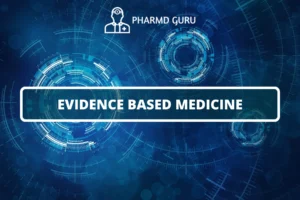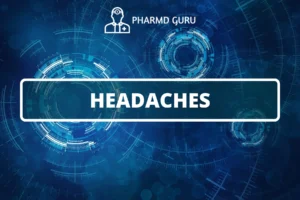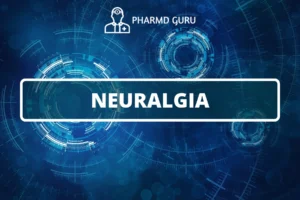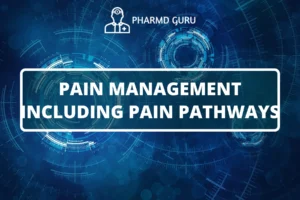Peptic ulcer disease (PUD) is a prevalent gastrointestinal condition that affects millions of people worldwide. It is characterized by the formation of open sores, known as ulcers, in the lining of the stomach or the upper part of the small intestine. In this article, we will delve into the etiopathogenesis of peptic ulcer disease, exploring the factors that contribute to its development, and discuss the various pharmacotherapy options available for its treatment.
SCROLL DOWN TO THE BOTTOM OF THIS PAGE FOR ACTUAL NOTES.
Table of Contents
- Introduction
- Understanding Peptic Ulcer Disease
- Etiology and Risk Factors
- Pathophysiology of Peptic Ulcer Disease
- Clinical Presentation
- Diagnostic Approaches
- Treatment Options
- Pharmacotherapy for Peptic Ulcer Disease
- Proton Pump Inhibitors (PPIs)
- Histamine-2 Receptor Antagonists (H2RAs)
- Antacids
- Cytoprotective Agents
- Antibiotics
- Lifestyle Modifications
1. Introduction
Peptic ulcer disease has been a subject of extensive research, and our understanding of its etiopathogenesis has significantly improved over the years. This article aims to provide a comprehensive overview of the disease, its causes, and the pharmacotherapy options available for its management.
2. Understanding Peptic Ulcer Disease
Peptic ulcer disease refers to the formation of ulcers in the lining of the stomach or the upper part of the small intestine, also known as the duodenum. These ulcers can vary in size and depth, causing varying degrees of discomfort and pain. The most common cause of peptic ulcer disease is infection with a bacterium called Helicobacter pylori (H. pylori) and the use of non-steroidal anti-inflammatory drugs (NSAIDs).
3. Etiology and Risk Factors
a. Helicobacter pylori Infection:
- Transmission and colonization
- Role in ulcer formation
b. Non-Steroidal Anti-Inflammatory Drugs (NSAIDs):
- Mechanism of action
- Risk factors associated with NSAID-induced ulcers
4. Pathophysiology of Peptic Ulcer Disease
a. Acidic Environment and Mucosal Defense Mechanisms:
- Role of gastric acid secretion
- Protective factors in the mucosa
b. Disruption of Mucosal Integrity:
- Impairment of mucosal defense mechanisms
- Factors leading to ulcer formation
5. Clinical Presentation
a. Signs and Symptoms:
- Epigastric pain
- Nausea and vomiting
- Loss of appetite
- Weight loss
b. Complications:
- Bleeding ulcers
- Perforation
- Gastric outlet obstruction
6. Diagnostic Approaches
a. Endoscopy:
- Direct visualization of ulcers
- Biopsy for H. pylori testing
b. Non-Invasive Tests:
- H. pylori breath test
- Stool antigen test
7. Treatment Options
a. Eradication of H. pylori infection b. Discontinuation or modification of NSAID therapy c. Symptomatic relief d. Prevention of complications
8. Pharmacotherapy for Peptic Ulcer Disease
Pharmacotherapy plays a crucial role in the treatment of peptic ulcer disease. The following are some of the commonly used medications:
Proton Pump Inhibitors (PPIs)
PPIs are a class of drugs that reduce the production of gastric acid by irreversibly blocking the enzyme responsible for acid secretion. They are highly effective in managing peptic ulcers and promoting healing.
Histamine-2 Receptor Antagonists (H2RAs)
H2RAs reduce gastric acid production by blocking the histamine receptors in the stomach. Although not as potent as PPIs, they are still effective in treating peptic ulcers, especially in mild cases.
Antacids
Antacids work by neutralizing the gastric acid, providing temporary relief from the symptoms of peptic ulcer disease. However, they do not promote healing or prevent ulcer recurrence.
Cytoprotective Agents
Cytoprotective agents enhance the mucosal defense mechanisms, providing protection against gastric acid and other damaging factors. They are often used as adjunctive therapy in the management of peptic ulcers.
Antibiotics
Antibiotics are prescribed in cases of peptic ulcers caused by H. pylori infection. They are used in combination with other medications to eradicate the bacteria and prevent ulcer recurrence.
9. Lifestyle Modifications
In addition to pharmacotherapy, certain lifestyle modifications can help manage and prevent peptic ulcer disease. These include:
- Avoiding tobacco and alcohol
- Limiting the use of NSAIDs
- Eating a healthy diet
- Managing stress levels
ACTUAL NOTES:




